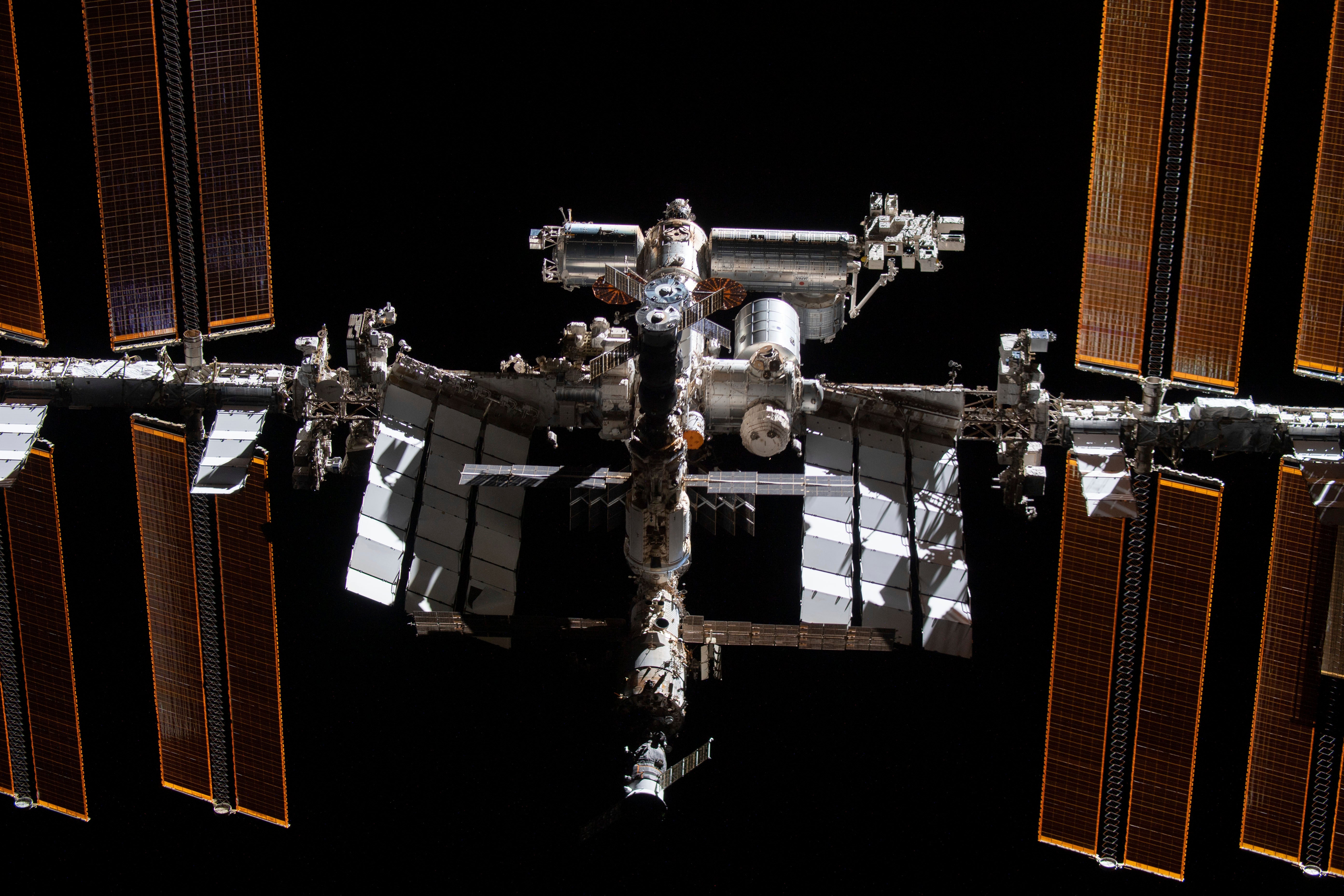Astronauts forced to take shelter on space station after Russian satellite blows up
More than 100 pieces of debris were thrown around space, officials said

Astronauts on the International Space Station were forced to take shelter after a Russian satellite broke up and flung debris through space.
Crews were told to get into their respective aircraft in case of any collision with the more than 100 pieces of debris that came after the satellite broke up, Nasa said.
It is just the latest example of space debris causing a potential danger for those on board the floating lab. Experts have warned that the ever-increasing number of satellites above the Earth could bring more collisions and potential problems for astronauts.
There were no immediate details on what caused the break-up of the RESURS-P1 Russian Earth observation satellite, which was decommissioned in 2022.
The event occurred in an orbit near the International Space Station, prompting U.S. astronauts on board to shelter in their spacecraft for roughly an hour, Nasa’s Space Station office said.
US radars detected the satellite releasing a cloud of debris in low-Earth orbit Wednesday night and early Thursday morning, space-tracking firm LeoLabs said.
US Space Command said the satellite immediately created “over 100 pieces of trackable debris.”
“USSPACECOM has observed no immediate threats and is continuing to conduct routine conjunction assessments to support the safety and sustainability of the space domain,” Space Command added in its statement on Thursday.
In a tweet, Nasa said that its astronauts had been asked to shelter as a “standard precautionary measure”, and that the alert was now over.
“Shortly after 9 p.m. EDT, Nasa instructed crews aboard the space station to shelter in their respective spacecraft as a standard precautionary measure after it was informed of a satellite break-up at an altitude near the station’s earlier Wednesday,” it said.
“Mission Control continued to monitor the path of the debris, and after about an hour, the crew was cleared to exit their spacecraft and the station resumed normal operations.”
Subscribe to Independent Premium to bookmark this article
Want to bookmark your favourite articles and stories to read or reference later? Start your Independent Premium subscription today.

Join our commenting forum
Join thought-provoking conversations, follow other Independent readers and see their replies
Comments